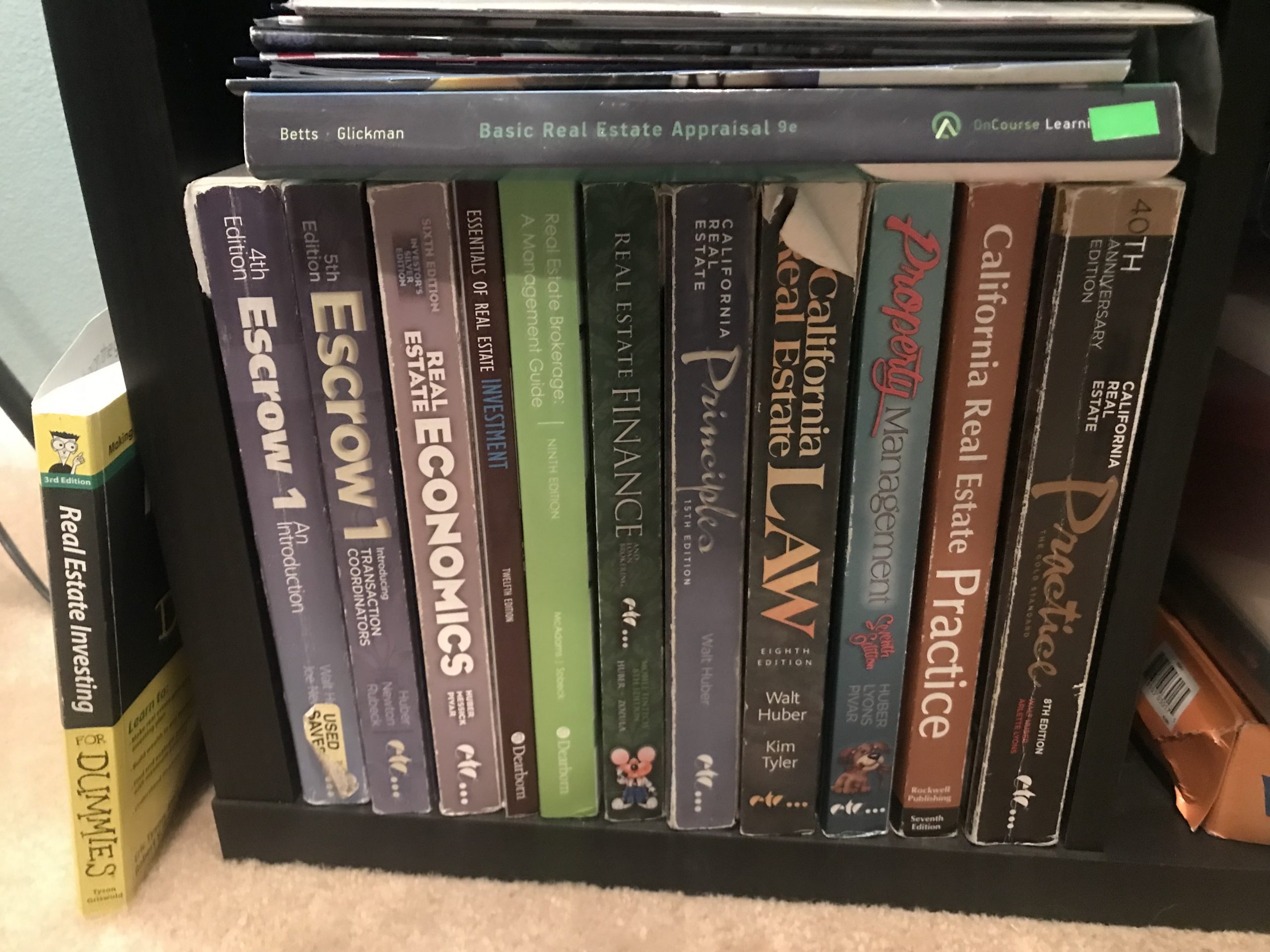
Textbooks from college-level courses I’ve taken over the years. You only need to take three courses to be eligible for a license. I’ve taken 11.
Four years ago today, I passed the California Department of Real Estate’s exam and became a Licensed Real Estate Salesperson. It marked the end of a year of education on all the different aspects of being a real estate professional, and meant I could now work with real estate clients all throughout California.
After doing some research into the different brokerages (a salesperson has to be employed by a broker), I decided to “hang my license” with the fantastic Coldwell Banker Realty, at the Venice/Playa Vista office in Southern California. That’s when my REAL education began.
Coldwell Banker Realty has an unbelievable array of educational programs they make available for their agents, and I’ve taken as many as I can. These brokerage classes teach you the kinds of things they don’t cover in the “academic” courses; they teach you the nuts-and-bolts of what to do – and perhaps more importantly, what NOT to do! I’m so grateful for these learning opportunities.
Since then, I’ve continued taking classes, and even gotten an additional credential, receiving a First Time Buyer Specialist certification from the California Association of REALTORS®. This is an exciting market and it’s great to work with first-time buyers to help guide them on their path to homeownership. (That being said, we also work with sellers, renters, and investors!)
So what are my big takeaways from the last five or so years? In no particular order…
1). EVERY REAL ESTATE SITUATION IS UNIQUE
From the clients to the agents, the homes to the neighborhoods, the price points to the interest rates, every time we start down the road with a new situation, be it a buyer, seller or investor client, it’s safe to say that no two deals are alike.
This is where the breadth and depth of my real estate education is invaluable for me and my clients, as I’m prepared with a very solid knowledge base and skill set to guide the journey.
2). THE MARKET IS CONSTANTLY SHIFTING
This is both what we traditionally think of as the “real estate market,” meaning the inventory, prices, interest rates, etc. – but also on a bigger picture-level.
For example, generational changes (think Baby Boomers and Millennials) means the demographics of housing is moving with an almost invisible undercurrent of change that takes years or even decades to perceive. Or how technology and the post-pandemic “work from home” pattern has virtually instantly changed the real estate matrix that included physical proximity to job opportunities.
Of course, there’s a role for those traditional market metrics, and I’ve worked hard to become an expert in all of them.
I love real estate and all of the complexities that go with it. Beware agents who tell you they “know the market.” Do they really?
3). FIND A REAL ESTATE AGENT YOU CAN TRUST
This is a big one. There are a lot of real estate agents out there, and a lot of brokerages, big and small. Not all of them are great – and many of them are shockingly awful, ranging from the shady to antagonistic, ignorant to incompetent. My advice – find someone with whom you feel comfortable, but make sure they earn your trust, both in their abilities and in their ethos.
I’m curious to know your thoughts about the real estate industry! Contact me to connect!


 Facebook
Facebook
 X
X
 Pinterest
Pinterest
 Copy Link
Copy Link

